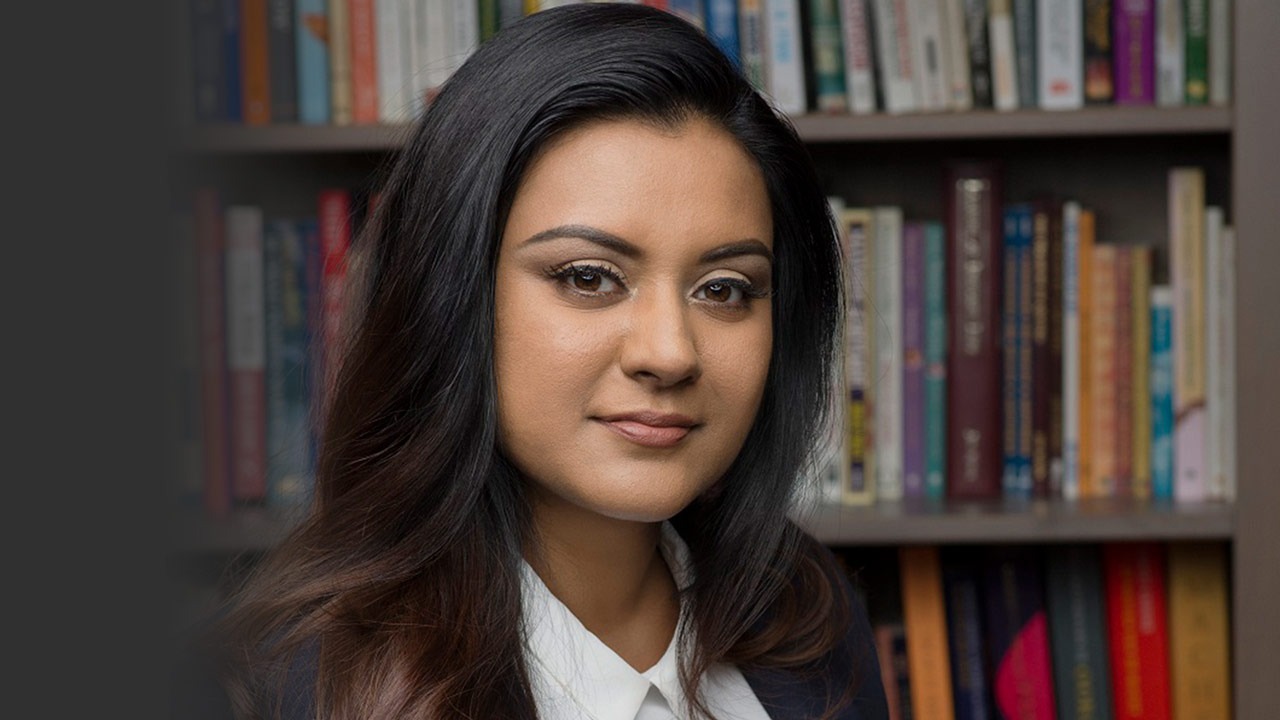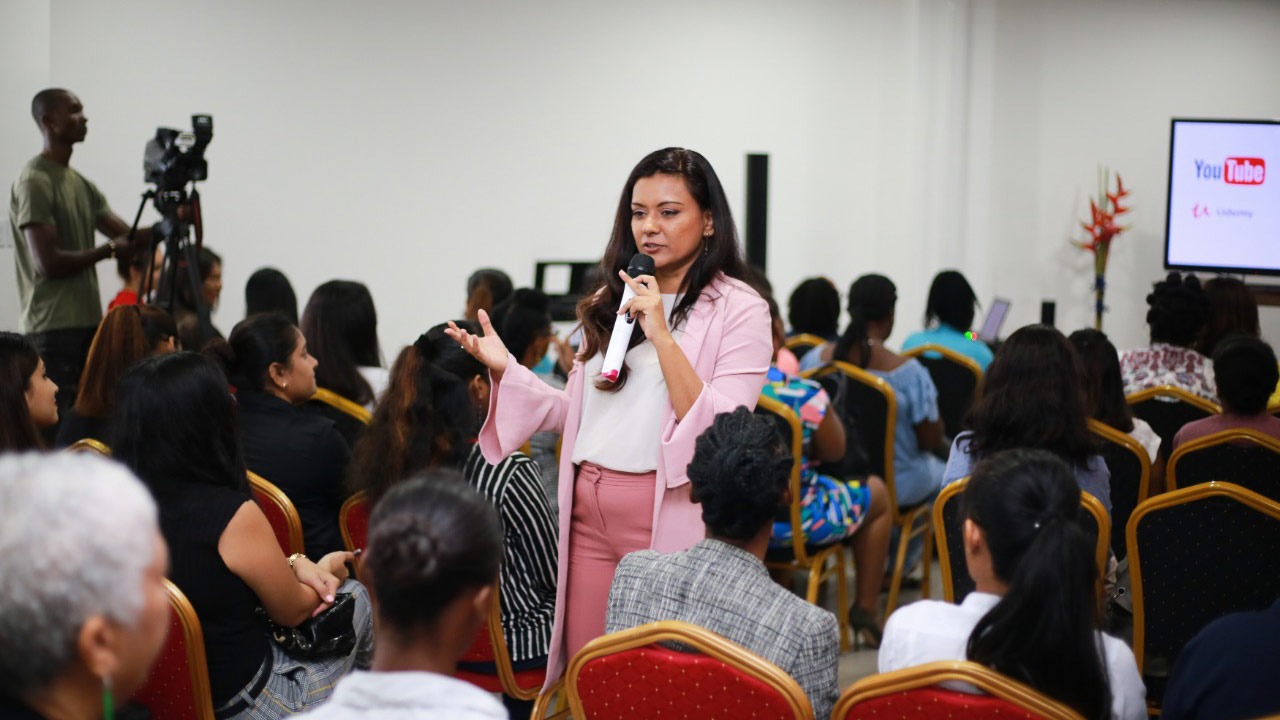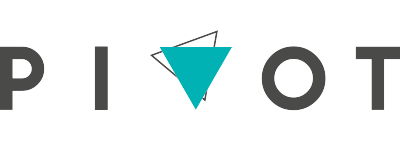
26 Aug Create 100 companies. Create an Industry Anuskha Sonai’s Vision for ICT in Suriname
How many employees aspire to grow the company they work for as though it was their own? It only takes a minute with Anuskha Sonai to realise she thinks differently.
The Certified Futures Thinker and President of Creative Tech Hub Caribbean, participated in The Pivot Event hosted by the IDB and its partners in 2020. She worked on digital transformation and was part of the group that conceived “blurred reality”, a moonshot idea using blockchain to better manage and distribute the Caribbean’s resources.
Anuskha, who is Surinamese and of Hindustani descent, helped her parents with housework and their side hustle, selling eggs and produce, when she was a child. She also learned handy sales skills from her father, who she says went from employee to entrepreneur and also taught his four girls how to be good employees and most of all, good citizens.
Ironically, it was applying an entrepreneurial mindset as an employee of internet marketing company Spang Makandra that led Anuskha to excel in her roles, acquire shares in the company and, in 2015, become CEO. According to Anuskha, she went from “intrapeneurship to entrepreneurship.”
Instead of learning the “tricks of the trade” in the company and then leaving to start a competing company as she had seen others do, she asked herself, “How can I bring my knowledge and work attitude to the whole company?” She was more interested in the expansion and adoption of ICT in Suriname.
She says, “If you want to develop the sector and help to diversify the economy of a country, you cannot have only similar companies who are competing with each other and fighting for a small cake. You have to work on making a bigger cake.”

The making of Creative Tech Hub Caribbean
Using this approach she co-founded Cloud Engine, Creative Talents Foundation and 21Q Caribbean, all with complementary services to Spang Makandra. The profits from these companies are used to fund the Digital Talents Academy. This cluster of entities is Creative Tech Hub Caribbean.
To take the idea of “making a bigger cake” further, the Digital Talents Academy implements a Learn, Work, Grow programme. Cohorts of young people are accepted to learn skills like game development, digital design, web development and virtual assistance over a period of three years within the Creative Tech Hub companies. On completion, they are assisted either with starting their own businesses or finding jobs in large companies in the sector.
Anuskha says the goal is to contribute to the creation of 100 ICT companies in Suriname. And a dent in that total has already been made with eight new companies being formed to date.
Her efforts to expand the industry extend outside of Creative Tech Hub to advocacy for girls in ICT. She is also the Chair of the ICT Association of Suriname and Chair of the Marketing and Communications Committee of the Caribbean Association of National Telecommunications Organisations (CANTO).
How a “no” triggered thinking for change
But what triggered this kind of thinking for Anuskha? She tells the story of her parents wanting her to be a doctor when she was growing up. Though she didn’t exactly know what she wanted to do, she followed that plan and attended medical school for three years before changing direction; a blow to her parents.
She thought long and hard about what else she could do and excel at to avoid disappointing them again. Eventually she decided on electrical engineering as she loved working with machines and computers.
It was during that undergraduate study at Anton De Kom University in Suriname when a problem at the institution led to a realisation which served as a catalyst for her new career in ICT.
She recalls how there would always be challenges with student grades being lost with the paper system the university was using. In an attempt to solve the problem she created an application that would assist the administrators with recording, storing and retrieving student grades and information far more efficiently. But there was huge resistance… no one wanted to use it.
As she explains, “[For them] going from paper to [Microsoft] Excel was already a very big step. And that’s when I realised, the technology was not the main problem because I wasn’t the first student who could build an app… but people should… want to use technology to improve their work and if they don’t want to use it, it’s no use to make anything. So I used that to think about how will I change this in a way that I can profit from it?”
Years later, she continues to explore that question through her entrepreneurship and volunteering to grow Suriname’s ICT sector.

